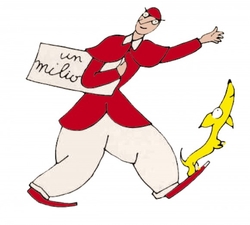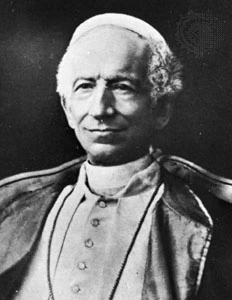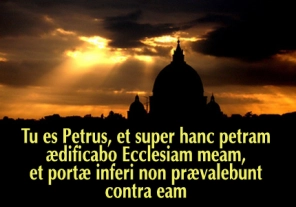Blog Archives
Lex Orandi, Lex Credendi, Lex Vivendi
It is interesting to observe how in matters of religion everything is interconnected.
Lex Orandi, Lex Credendi, Lex Vivendi, our wise forefathers used to say. We, who are far less wise, think everything must be fine because we “have the heart in the right place”, and as a result unavoidably make a pig’s breakfast of things.
Much has been written already about the liturgy, so I will skip the point today. Let us, however, take the expression lex orandi literally, as referred to the way we pray. Once upon a time, prayers were learnt by rote; as a result, basic tenets of the faith were hammered into the head of even the more theologically challenged.
As an example, let us take the “Hail, Holy Queen”, a prayer almosr disappeared in the wake of Vatican II and now revived together with the practice of the Rosary. When reciting the “Hail, Holy Queen” everyone was reminded – inter alia – that Mary is his hope; that he is a) a banished b) child of Eve; that he lives in a valley of tears rather than, say, in the Great Oprah New-Age Amusement Park; that Mary is our advocate, whose merciful help we sorely need; that we are exiled on this earth, and at the end of this exile we need Her to show us to Jesus, born of her through the miracle of the Incarnation, in order for us to know that, at last, we made it.
All this may seem banal, but it isn’t. I suspect most of the concepts expressed above either sound strange or are fully unknown to most of today’s “casual” Catholics, who have been encouraged to make their own prayers and as a result have ended up making their own theology, their lex credendi unfailingly mirroring the superficiality and chaos of their lex orandi.
Nor does this stop at the mere problem of bad instruction, because the new lex credendi will unavoidably create a correspondent lex vivendi. If I am not a banished child of Eve, do I really need to go to Mass? If I am not in need of any mercy, why do I need to go to confession? If I and mine are already worthy of the promises of Christ, what need is there to baptise my children? Hey, their heart will most surely be “in the right place”: after all, they are my children, and I am – as all my friends, some of whom obligatorily “gay”, will attest – sooo nice!
At this point, Christianity has all but disappeared from one’s and one’s family members’ conscience and way of life, and it has been replaced by a vague, but emotionally satisfying feeling of a generic perceived “goodness” without any logic. Perversion is now either ignored or “celebrated”, adultery is a way of life deserving of our “support”, contraception is accepted as obviously “right” and the Church – when one is even conscious of what the Church’s position on the matter is – clearly “wrong”; then the fact the Church can’t be wrong in doctrinal matters was not contained in any of the self-made prayers on which the theology of the typical Post-V II (un)faithful is based.
So, what do we have? No mass attendance (80% or more of the Catholics in the West); divorce like there’s no tomorrow (in Germany, same percentage of divorced spouses in Catholic Cologne as in neighbouring, Protestant Dusseldorf); aiding and abetting of sexual perversion (again in Germany, approved by the “Christian” party, led by the clearly atheist, (cough…) culona inchiavabile, Angela Merkel), contraception as a kind of social duty across the religious spectrum, & Co., & Co. …
It all starts with the attack against the lex orandi, both as liturgy and as individual prayer life.
Satan knows this very well.
The V II clergy are well aware of this too.
Which is why they have massacred them.
Mundabor
The Memorare

"Coronation of the Virgin", Filippo Lippi, ca. 1444. Sala delle Arti Liberali, Vatican City.Source: http://www.aloha.net
“Memorare, o piissima Virgo Maria….”
It is sad to think that these words, once devotedly pronounced by countless faithful every day, nowadays rarely adorn Catholic lips. One cannot avoid noticing that when prayers where recited in the allegedly so tough Latin the faithful actually prayed a lot more than today that everything has been made easy for them. There is a lesson to be learned here, I think: you don’t do any favour to the faithful by making things shallow; you merely encourage them to become shallow themselves.
The neglect of the Memorare is particularly unfortunate, because this is a powerful prayer. I see in it the fundamental optimism and the simple but solid faith of the Catholic knowing that the Blessed Virgin will intercede for him without fail and just for the asking. This is not the prayer of one who hopes, but of one who knows that his prayer will go straight to the Queen of Heaven. The key words of the prayer are “non esse auditum a saeculo” (“that never was it known”) and “esse derelictum” (“was left unaided”). If you hear this prayer once or twice you will probably instantly remember this powerful statement and its far reaching promise: that given the proper attitude, the Blessed Virgin intercedes without fail for anyone who addresses her.
This is powerful stuff. This is the Catholicism of our forefathers, who were less used than us to rely on secular institutions to sort out their problems and rather accustomed to look heavenward in their troubles. The Memorare forces us to face the fact that Mary’s intercession is not something existing in an undetermined dimension somewhere between a child’s tale and a vague hope, but a very concrete reality in which we can take refuge every day.
Our ancestors – solidly rooted in Catholicism irrespective of their education level – were naturally familiar with such a concept, but the present generation vastly ignores the very notion of the Communion of Saints, nor will you find many priests willing to take care that such basics elements of Catholicism are universally and thoroughly understood. This ruthless massacre of everything specifically Catholic – and his substitution with a protestantised, simplified and banalised undersatanding of Catholic prayer and devotion – was perhaps not positively encouraged, but certainly made possible by the “aggiornamento”. Some fifty years later, Catholic desolation is what this passion for “change” has engendered: once commonly used devotions have disappeared, once beloved prayers are almost forgotten and mainstays of Catholic thinking, powerful tools in a world of insecurity and trouble, have been utterly and wilfully neglected.
I may be wrong, but my impression is that the rediscovery of this and other beautiful ancient prayers is the result of the rediscovery of Latin and of the growing awareness that together with Latin a rich patrimony of Catholic traditions and devotions has been thrown into the dust bin. I wonder how one can rediscover traditional Catholicism without recovering Latin, and vice versa.
The Enchiridion of Indulgences states that a partial indulgence is granted to the faithful who recite the Memorare.
You can find here both the Latin and English version, together with the most succinct and easy to understand historical information I could find.
Mundabor
The Prayer to St. Michael the Archangel
The prayer to St. Michael the Archangel was created by Pope Leo XIII in 1886 after a vision. The vision was clear as to the fact that the XX century would be the one in which Our Lord would allow Satan to try (if he can of course) to destroy the Church. Leo XIII ordered this prayer to be added to the prayers after mass (called the Leonine Prayers) which he himself had introduced two years before.
Today it appears very clearly how dramatically authentic Pope Leo XIII’s vision was. The XX century has been, indeed, one of great tribulation for the Church, with Satan attacking and severely damaging Her from the inside. Fittingly, the prayers after Mass were officially suppressed in 1964.
More than fifty years later, the devastations caused by Vatican II on one side and – to a much greater extent – from the “spirit of Vatican II” on the other side are all too apparent. We can clearly see now how Satan acted, we have the damages in front of our eyes. Still, we can also see that the Church survived the attack; that she slowly but surely begins to react and to get her act together; that she is now rapidly recovering not only the notion of proper Liturgy, but the understanding of Her mission.
We can also see that even in the midst of such havoc, no doctrinal damage has been suffered. The Holy Ghost has in such difficult times protected the Church as he always does: leaving the men who run Her free to be as corrupt and evil as they want but never allowing them to touch Her doctrinal purity.
Today we see a slow, but unstoppable recovery and have additional evidence that the gates of Hell will never prevail. We stand in horror at the scale of the devastation, but in awe at the way the sancta sanctorum of Catholicism, the doctrinal corpus, has been left undamaged by the bombardments of both the “aggiornamento” and his bastard child, the “spirit of Vatican II”.
I invite the readers to memorize this beautiful prayer and to recite it after Mass and whenever they are confronted with a manifestation of aggressive secularism in their daily lives. It is a beautiful and uplifting prayer. It is wonderfully politically incorrect. It is, I do not doubt, powerful.
English:
Saint Michael the Archangel,
defend us in battle;
be our protection against the wickedness and snares of the devil.
May God rebuke him, we humbly pray:
and do thou, O Prince of the heavenly host,
by the power of God,
thrust into hell Satan and all the evil spirits
who prowl about the world seeking the ruin of souls.
Amen.
Latin:
Sancte Michael Archangele,
defende nos in proelio;
contra nequitiam et insidias diaboli esto praesidium.
Imperet illi Deus, supplices deprecamur:
tuque, Princeps militiae Caelestis,
satanam aliosque spiritus malignos,
qui ad perditionem animarum pervagantur in mundo,
divina virtute in infernum detrude.
Amen.
Mundabor






















You must be logged in to post a comment.